What to bring with you
In to-day’s climate of national and international crime and terrorism the authorities are requiring us all to take steps to make it more difficult for criminals to feed the proceeds of their crimes into legitimate enterprises. Notarising a document today therefore requires the same anti-terrorism and anti-money laundering formalities to be complied with as one would when opening a new bank account. The rules are very strict and the process has to be repeated every time you go to the Notary unless you have been with the same one within the previous three months. The Notary must keep copies of the identification records for at least five years.
If a Notary Public has a suspicion that the documents that he is being required to notarise are in connection with monies or assets which may possibly concern the proceeds of crime or terrorist activity then he is under an obligation to report that as a suspicious activity to the Serious Organised Crime Agency (SOCA). This obligation exists notwithstanding the privileged and highly confidential nature of the relationship that exists between a Notary and his client. A Notary Public, in order to put his mind at rest regarding the bona fides of those monies or assets, may therefore require the client to produce a letter from his solicitor or banker to prove their genuineness.
Proof of Personal Identity: Every person who is executing a document must prove their identity by the production of any of the following original and valid documents (with photograph incorporated):-
- Passport. If your Passport Number is given in the document to be notarised, then your Passport must be produced, without exception. A photocopy of you Passport will not be accepted under any circumstances
- Driving Licence.
- National identity Card.
- HM Forces Identity Card or equivalent.
- Travel Pass.
Proof of Place of Residence: Every person who is executing a document must produce evidence of their address by means of the following original documents which must not be more than three months old:-
- Utility Bill (electricity, phone, Rates, etc)
- Bank Statement
- Pension Book
- National Insurance Card
- Driving Licence
- Tax Demand
Lesser proof of either personal identity or address will only be accepted by the Notary if he is satisfied that the reasons are compelling. However, the Notary will give no assurances in advance that your substitute document of identification will be acceptable.
Copy documents for certifying: If you require documents to be certified as true copies then the originals must be produced. Copies on their own will simply not be notarised. You may produce the copies yourself in advance of your visit or the Notary may make the copies himself. The Notary may make an extra charge for this, depending on the amount and nature of the copying required.
Notaries Public in Northern Ireland will not certify copies of degrees, etc. from educational institutions from outside the United Kingdom or the Republic of Ireland. You will have to refer the body to whom you are applying directly to the appropriate educational institution who should then furnish verification of that qualification.
Foreign Language Documents: There is no obligation on a Notary to understand the foreign language in which a document is written. However, before getting you to execute such a document he will want to satisfy himself that you understand it. If the Notary is satisfied that you understand the document he will either stamp it with, or append to it, a statement to the following effect: ‘The notarial act is limited to the verification of the identity, legal capacity, name and signature of the Appearer, unless otherwise expressly stated in the English Language.’ This is to protect you and the Notary in case the language of the document or the practice of the country in which the document is to be used would suggest that the Notary is doing or saying more than either you or the Notary understand to be the case. He will then require you to acknowledge formally in writing in a standard form that you understand the document in (or partly in) a foreign language. It is therefore imperative that before you see the Notary that you have the foreign language document to be notarised translated by a competent translator and explained to you by someone who you trust, e.g. your own solicitor.
Company Documents: If a document or a series of documents is to be executed by someone on behalf of a company then the authority for so doing should be produced to the Notary by the person giving it. This may take the form of a Resolution of the Board or of a letter from the Company Secretary.
